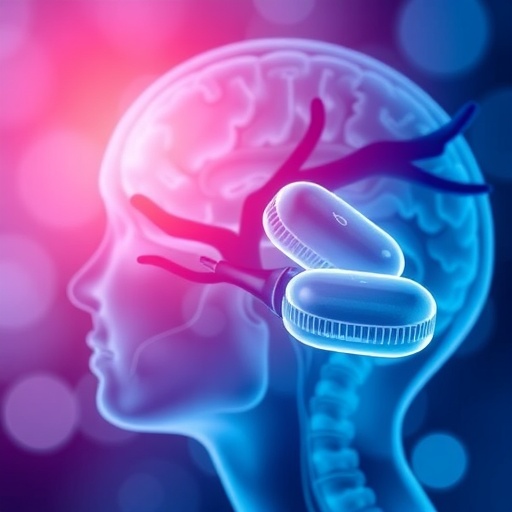Multiple sclerosis (MS) remains one of the most enigmatic and formidable neurological disorders, afflicting millions worldwide. Within this spectrum of the disease, approximately 100,000 individuals in the United States are diagnosed with a particularly aggressive form known as progressive MS. Unlike the relapsing-remitting variant, progressive MS is characterized by an unyielding deterioration of neurological function, with symptoms intensifying steadily and few opportunities for remission. This relentless progression poses immense challenges for both patients and clinicians alike, as therapeutic options remain frustratingly scarce.
At the core of MS lies an autoimmune assault targeting the myelin sheath, the insulating layer enveloping nerve fibers. This protective sheath is critical for the efficient transmission of electrical impulses that govern sensation, movement, and cognition. When immune cells erroneously attack myelin, they disrupt nerve signaling, leading to the hallmark symptoms of MS such as fatigue, numbness, and impaired mobility. Importantly, progressive MS tends to manifest with more severe walking and balance difficulties, and epidemiological data indicate a higher prevalence among individuals of African descent, underscoring the need for tailored research efforts.
Recent groundbreaking research led by neurologist Francisco P. Gomez and collaborators from Texas A&M University Health Science Center shines new light on potential hormonal interventions for progressive MS. Their study zeroes in on two estrogens—estradiol and estriol—hormones predominantly involved in female reproductive physiology but now recognized for their neuroprotective and immunomodulatory properties. The research harnessed an experimental mouse model designed to mimic the inflammatory demyelination seen in progressive MS, induced via viral mechanisms that simulate Epstein-Barr virus (EBV) infection, a suspected trigger in MS pathogenesis.
EBV has gained attention in recent years as a pivotal factor in initiating autoimmune responses that culminate in MS. It is hypothesized that the virus provokes immune dysregulation in genetically susceptible hosts, resulting in aberrant targeting of myelin. The utilization of a viral model in this study represents a significant advance, providing a biologically relevant platform to test therapeutic candidates aimed at the fundamental drivers of MS rather than mere symptom management. This approach underscores the shift towards precision medicine in neuroimmunology.
The rationale behind investigating estradiol and estriol stems from clinical observations that women with MS often experience symptom amelioration during pregnancy, a period marked by elevated levels of these estrogens. Notably, the third trimester is associated with a peak in estradiol and estriol concentrations, correlating with decreased MS relapses. Complementing these insights, women using oral contraceptives also report fewer disease flares, suggesting a protective hormonal influence. These epidemiological clues propelled Gomez’s team to delve deeper into the mechanistic roles of these hormones in preserving myelin integrity and taming neuroinflammation.
Estradiol, a potent estrogen extensively employed in hormone replacement therapy for postmenopausal women, exhibited a pronounced capacity to mitigate myelin damage in the experimental model. Conversely, estriol, though less potent and primarily approved for treating urinary incontinence in canines, demonstrated significant anti-inflammatory effects within the spinal cord. These findings are pivotal because they delineate a dual mechanism where estriol controls immune-mediated inflammation, while estradiol exerts direct protective effects on myelin structure and function.
The anti-inflammatory actions of estrogens in the context of MS are multifaceted. They modulate the activity of various immune cells, including T cells and macrophages, shifting the immune response from a pro-inflammatory to a regulatory phenotype. Moreover, estrogens upregulate neurotrophic factors and promote remyelination by enhancing the survival and differentiation of oligodendrocyte precursor cells, the cells responsible for generating new myelin. This interplay provides a compelling therapeutic avenue that targets both the cause and consequence of demyelination.
The implications of this research extend beyond preclinical models, signaling a promising horizon for translational application in human progressive MS. Current disease-modifying therapies largely address relapsing forms of MS and are less effective in halting progression. The ability of estradiol to preserve myelin suggests potential for hormone-based treatments to fill this unmet clinical need. Nevertheless, challenges remain in optimizing dosage, minimizing side effects, and understanding long-term outcomes before these interventions can be routinely integrated into patient care.
Importantly, the scientific team emphasizes that no competing interests influenced their findings, attesting to the integrity and objectivity of this research endeavor. With progressive MS disproportionately affecting women and minorities, the discovery of estrogenic therapy benefits also calls for inclusive clinical trials to ensure equitable access and efficacy across diverse populations.
This study adds to the growing body of evidence supporting the nuanced role of sex hormones in neuroimmune regulation. It underscores an imperative to reconceptualize MS treatment through a lens that considers hormonal milieu and its impact on disease trajectory. Researchers advocate for further exploration of combinatorial therapies that integrate estrogens with other immunomodulators, aiming to synergistically arrest disease progression while enhancing neurological repair.
In conclusion, the therapeutic promise of estradiol and estriol to counteract inflammatory demyelination represents a significant stride in MS research. Through viral modeling reflecting Epstein-Barr virus’s pathogenic mechanisms, this study offers a sophisticated and relevant framework to evaluate potential treatments. These findings hold transformative potential for the millions grappling with progressive MS, heralding a future where relentless neurological decline might be challenged effectively by harnessing the body’s own hormonal pathways.
Subject of Research: Animals
Article Title: Therapeutic effects of estrogens on inflammatory demyelination in a mouse model of multiple sclerosis
News Publication Date: 22-Jul-2025
Web References: http://dx.doi.org/10.1016/j.jneuroim.2025.578698
References: Journal of Neuroimmunology
Keywords: Multiple sclerosis, Health care, Autoimmune disorders, Neuroimmunology, Estrogens, Estradiol, Estriol, Epstein-Barr virus, Progressive MS, Inflammatory demyelination




